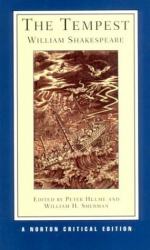|
This section contains 11,046 words (approx. 37 pages at 300 words per page) |

|
SOURCE: "Prospero," in The Cambridge Quarterly, Vol. XII, No. 1, 1983, pp. 1-25.
In the essay below, Gooder argues against an optimistic reading of the character of Prospero, maintaining that while the protagonist of The Tempest does indeed represent the zenith of human achievement, he nevertheless is not portrayed as having arrived at wisdom.
Students of The Tempest will know that there are two main lines of argument among critics who have written about the play. One is that The Tempest is 'Shakespeare's farewell to his art', and that in it he took a long backward glance over the characters, themes and subjects which he had dealt with in earlier plays, collected the most significantly recurrent of these—stripped of all impurities—and offered them to his audience as a kind of artistic confection containing all his essential meaning. The other is that The Tempest is a romance, a symbolic...
|
This section contains 11,046 words (approx. 37 pages at 300 words per page) |

|


